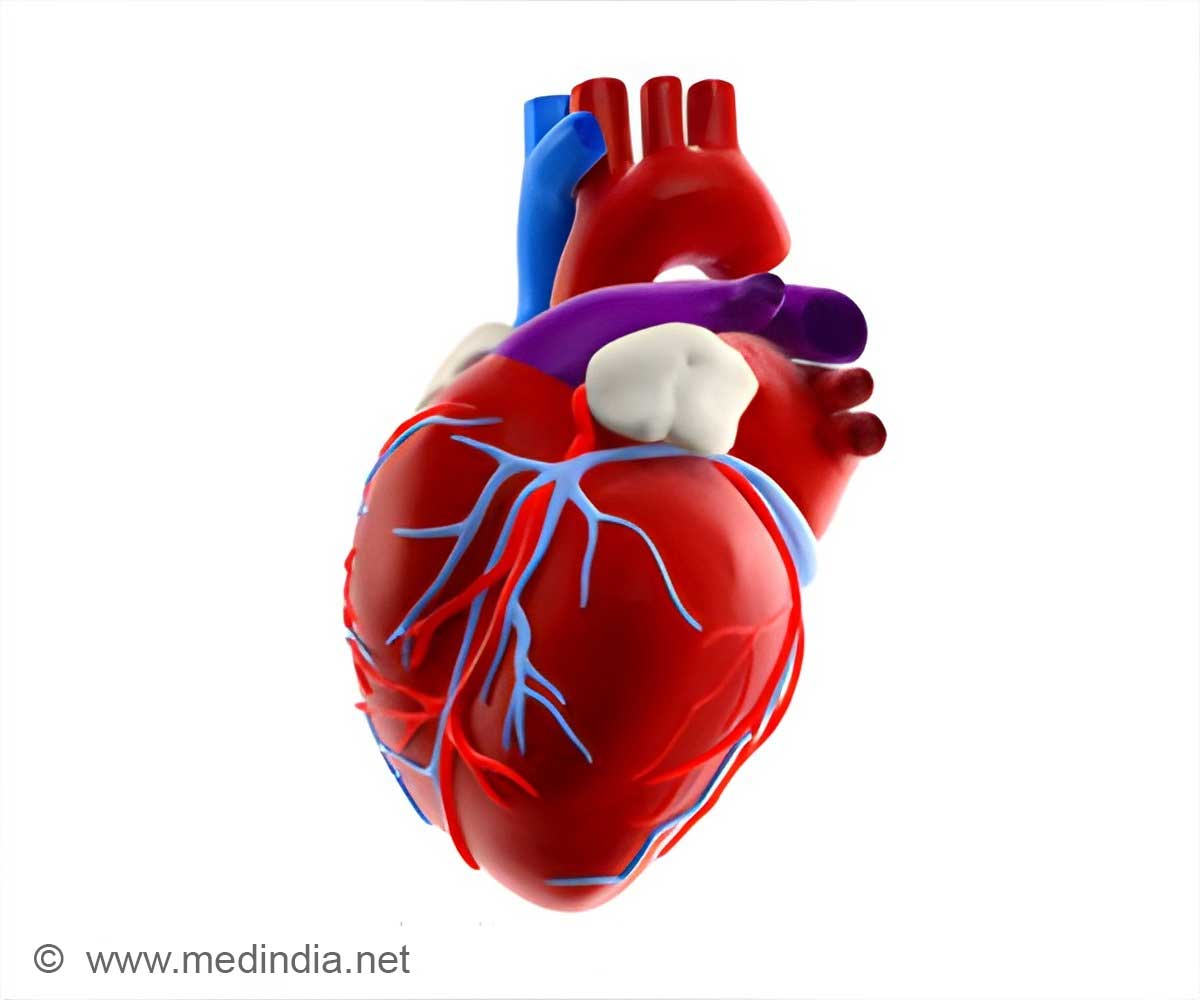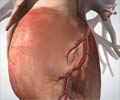AGGF1 protein has been found to mediate autophagy and angiogenesis, increasing the number of cardiac cells after myocardial infarction.

- AGGF1 protein found to promote angiogenesis and autophagy
- Increase in the number of cardiac cells surviving after myocardial infarction on injection of AGGF1
- JNF, a mediator for AGGF1, identified
When atherosclerosis increases, the amount of blood reaching the heart is reduced, leading to poor heart function. Sudden stoppage of blood flow to the heart can lead to a heart attack.
- Coronary artery disease is the most common type of heart disease.
- It kills nearly 380,000 in the U.S every year.
- Every 34 seconds someone has a heart attack
- Every 60 seconds someone dies of a heart related disease.
Therapeutic Angiogenesis
Qing Kenneth Wang and colleagues studied the effect of AGGF1, a protein that aids in angiogenesis, with their paper published in the Journal PLOS biology. The scientists have used- AGGF1 to promote the formation of new blood vessels.
- Normal process of autophagy that removed cellular structures that are damaged. The molecular components from these structures are then utilized.
The researchers studied the effect of AGGF1 on endothelial cells. It was found that AGGF1 induced autophagy in these endothelial cells. The autophagy was identified by the detection of markers as well as changes noticed in the endothelial cells.
AGGF1 in Mice
The researchers studied the effect of AGGF1 on the heart of mice and found that not only endothelial cells, but all cell types were influenced by the presence of this protein.
Endothelial Cells with Drugs that Block AGGF1
Mice with Mutation in One or Both AGGF1 Gene
- Mice with no AGGF1 died in the embryo stage
- Mice with one copy of AGGF1 gene survived till they reached adulthood. The amount of autophagy in the heart was reduced.
When some of the mice were injected with additional AGGF1, their recovery was better, with more number of mice surviving 2 weeks and 4 weeks after the incident. The echocardiograms of the mice that received additional AGGF1 were also much better than mice that did not receive additional AGGF1.
Highlights of the Study
- AGGF1 induces both autophagy and angiogenesis
- The protein increases the number of cardiac cells that survive after myocardial infarction compared with mice that did not receive external injection of the protein after myocardial infarction.
- A molecular regulator called JNK was identified during the study that mediates the activity of AGGF1.
References:
- Heart statistics - (https://www.bhf.org.uk/research/heart-statistics)
- Heart Disease: Scope and Impact - (http://www.theheartfoundation.org/heart-disease-facts/heart-disease-statistics/)
Source-Medindia













